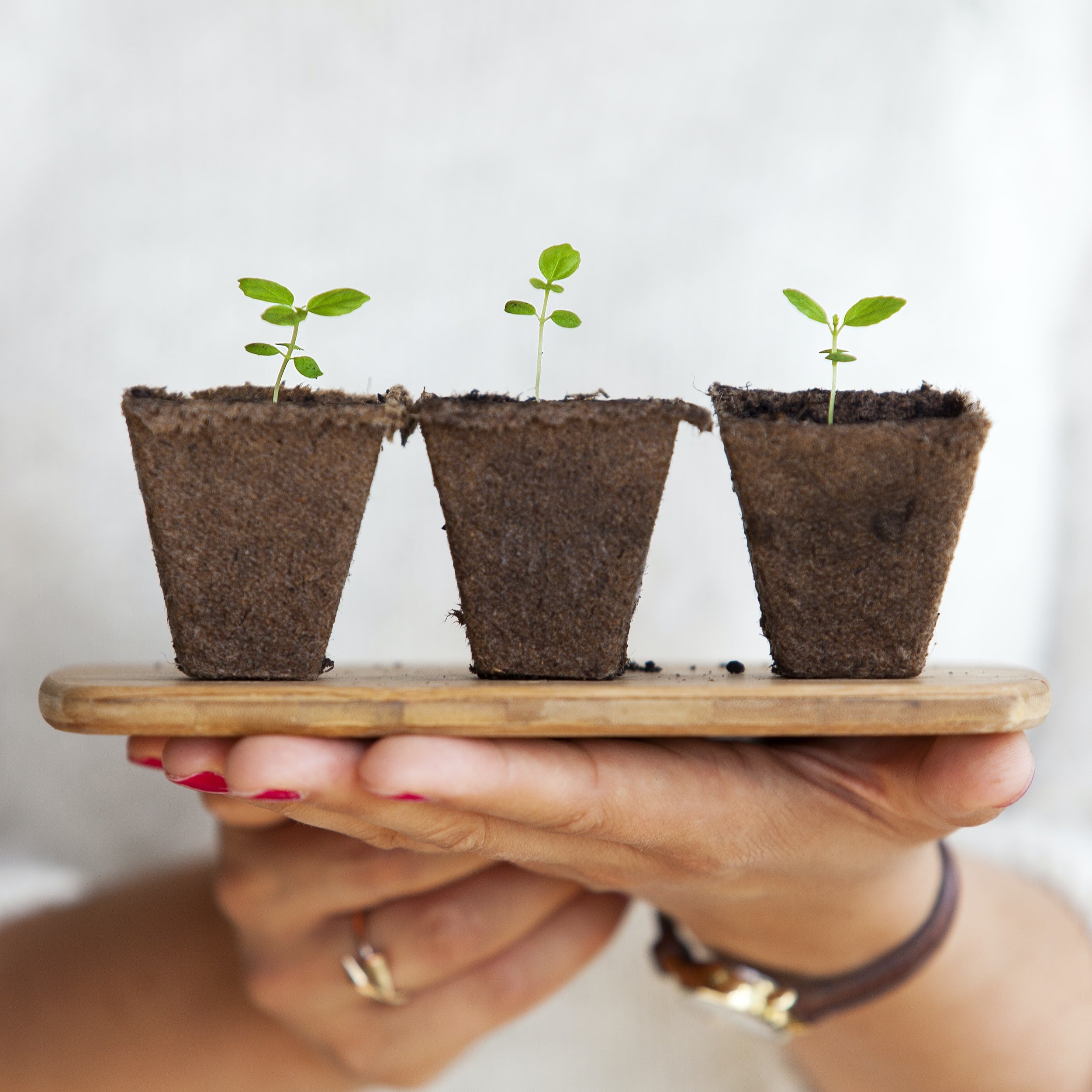How Does Your Garden Grow?
Mental Health Matters Blog by Katherine Skillestad Winans, Ph.D.
Ever since I can remember, I have found pure joy and delight in working in my garden. It has been a pastime that I have shared with family and friends. As I reflect upon my garden and the relationship, I have cultivated with it over the years, I am reminded that my garden is a metaphor for life.
Throughout the year, I plant seeds and bulbs. They seem so small and insignificant when placed in the soil, but what I am planting is much more. I am planting seeds and bulbs of hope, trusting that in time the natural process of life will peak through the cold February soil with the first yellow and purple crocus. I look forward to seeing the first crocus bloom in my yard near the front walk. This tiny little flower is the signal that spring is coming, and winter's cold and dark days will soon be gone.
Life is like this too. We must trust that the good things we are doing in our life will result in a positive outcome even though there are uncertainties, and we cannot always see what is happening. Relationships are similar. We often plant seeds of hope, trusting that with the proper nourishment and food, our relationships will grow healthy, and we will see evidence of this growth in many ways.
For a garden to grow, it needs a few necessary ingredients: water and nutrients, air and soil, sunshine for light and warmth, and space and time. People need many of these ingredients as well to grow and thrive. Clean air, water, and proper nutrition are fundamental to our health. Sunlight provides us with vitamin D and positive feelings. Social interaction and solitude also benefit our mental health.
Your garden needs attention regularly. It takes time to design, plant, water, feed, weed, and harvest. Your relationships require the same for them to grow. There is a positive relationship between time spent nurturing your relationships and the quality of the relationship. Put time and energy into the things that matter the most in your life. People often say that family is the essential thing in their lives. How are you caring for the essential thing in your life?
A once beautiful garden can be full of the weeds of resentment and anger. Slowly and over time, these weeds of resentment and anger take over the best part of yourself. If you let these take over, you may no longer see the goodness in yourself and others and are consumed by the negativity that has plagued inside you like a cancerous growth. Feeling angry and resentful is perfectly normal. Life can provide you with opportunities to experience these emotions, but holding onto these feelings for weeks, months, and years makes you a hostage in your own life. Learning how to pull out the weeds of anger and resentment can be incredibly freeing, but it can be a complicated process that takes time. You may also need the help of a therapist that guides you through the process of letting go and finding healing.
One of my greatest joys with gardening is sharing what the garden has provided me with others. Who doesn't love a fresh bouquet, a basket of rich red beets, or a hand-tied posy of rosemary, chives, oregano, and mint? Sharing your gifts as a person with others can be wonderful.
Every person has so much to offer; do not be afraid to share your talents, wisdom, and time with others. Examples of this may be mentoring young people or spending time with elders. They need people to take the extra time and invest in their lives. It does make a difference.
People have planted something special in the garden to remember loved ones who have died. This ritual of planting something living to honor the memories of important people in our lives can help with healing. In life, it is essential to have rituals that help us connect the past to the present and bring hope for the future. Perhaps there is someone special in your life that you want to honor by planting something extraordinary in your garden. Watching a rose bloom every year or a tree grow taller can bring a smile and warm your heart, knowing that this plant honors someone significant in your life.
Just like life, the garden has a cyclical nature. There are times of tremendous growth, times of rest, and times of decline. Embracing each season of your life is important and can allow you to discover what these moments offer. Beauty is everywhere, from the dry fallen leaves in fall to the blooms of summer. We see this beauty in humanity when we see a new baby, witness an act of kindness or bravery, or gaze into the eyes of an elder, knowing the depth of their wisdom and the many roads they have traveled.
Your mental health matters! Take time to smell the roses, plant your seeds of hope, pull out the weeds of destruction, and share your garden's bounty with others. Liberty Hyde Bailey, an American horticulturist and botanist who cofounded the American Society for Horticulture Science, nicely stated, "A garden requires patient labor and attention. Plants do not grow merely to satisfy ambitions or to fulfill good intentions. They thrive because someone expended effort on them."
July 1, 2020
